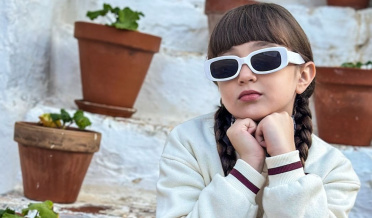Everyone working with children at the Junior Eurovision Song Contest is in a position of authority, responsibility and trust. Delegations, staff, volunteers and media should be role models for children, so it is essential that they behave in an appropriate way. They must also be able to recognise and report any behaviour in others that might be a cause for concern. You are therefore expected to:
- Always act in accordance with the Code of Behaviour and the Junior Eurovision Song Contest Child Safeguarding Policy by responding to any concerns or complaints of child harm or abuse promptly.
- Never ignore or disregard any concerns, suspicions, allegations or disclosures of child abuse.
- Observe children’s rights to privacy, dignity and respect and do not discriminate.
- Behave respectfully, considerately and ethically, being mindful of the diverse backgrounds and needs of the children, and their families.
- Support a safe and morally appropriate environment for the children. The competitive aspect of the Event should not be unduly stressed, nor should children be embarrassed or humiliated regardless of their experience or ability.
- Observe for, listen and respond appropriately to any signs, verbal or non-verbal, that the child may be anxious, or distressed, or that they do not feel safe.
- Ensure the child’s best interests are central to everything you do, thus ensuring they are protected from any inappropriate or unreasonable demands or behaviours.
- Always behave in a way that will not cause harm to a child. This includes physical, emotional, neglect, sexual abuse or exploitation, grooming, or commercial exploitation, whether directly, indirectly or online.
- Always maintain professional boundaries and model good behaviour at all times. Remember that adults are in a position of authority, and this must not be misused.
- Relate to children in a way that is age-appropriate, regardless of how old they look or how mature they may seem.
- Children must always be accompanied by an adult.
- Not expose or place children in situations out of their depth or in situations in which they cannot cope or where they do not have the development, skills or maturity to deal with such as when dealing with the media.
- Not ignore bullying between children.
- Never initiate inappropriate physical contact with a child. You should encourage the child to do as much for themselves as possible. Consent from the parent/guardian and child must always be sought prior to physical contact.
- Never use offensive or sexual language, smoke, drink or be under the influence of alcohol or illegal substances in front of children.
- Never discuss personal or adult issues with, or in front of, children.
- Never mock, humiliate or negatively comment about a child or their on-stage performance on the Junior Eurovision Song Contest
- Never friend or follow children’s personal social media’s accounts nor must you share your personal contact details, unless it is necessary as part of your role at the event.
- Not disclose personal or sensitive information about a child or take photographs of a child outside official photography areas at the event unless the child and their parent or legal guardian have given their consent.
- Portray children only in an ethically responsible manner, in accordance with what is suitable for an audience of any age in all the broadcasting countries of the Junior Eurovision Song Contest.
- Create an environment that promotes and enables children’s participation at the Junior Eurovision Song Contest, and is welcoming, culturally safe and inclusive for all children and their families/guardians.
- Not patronise or discriminate and always show children respect regardless of gender, sexual orientation, culture, ethnicity, disability, and religious belief, and appreciate all participants.
Any breach of this Code of Behaviour shall lead to sanctions and measures being taken in accordance with Part 1 of the JESC Safeguarding Policy.
Updated: November 2023
